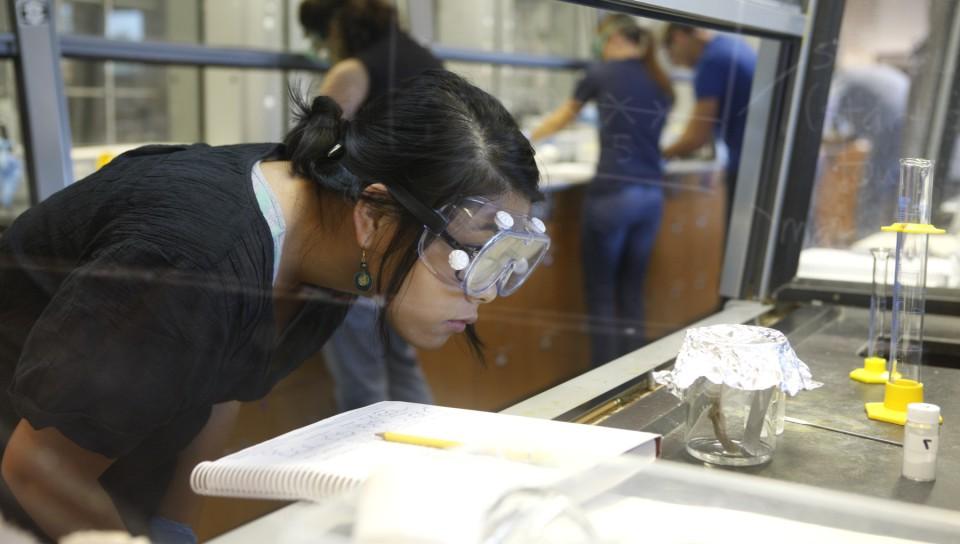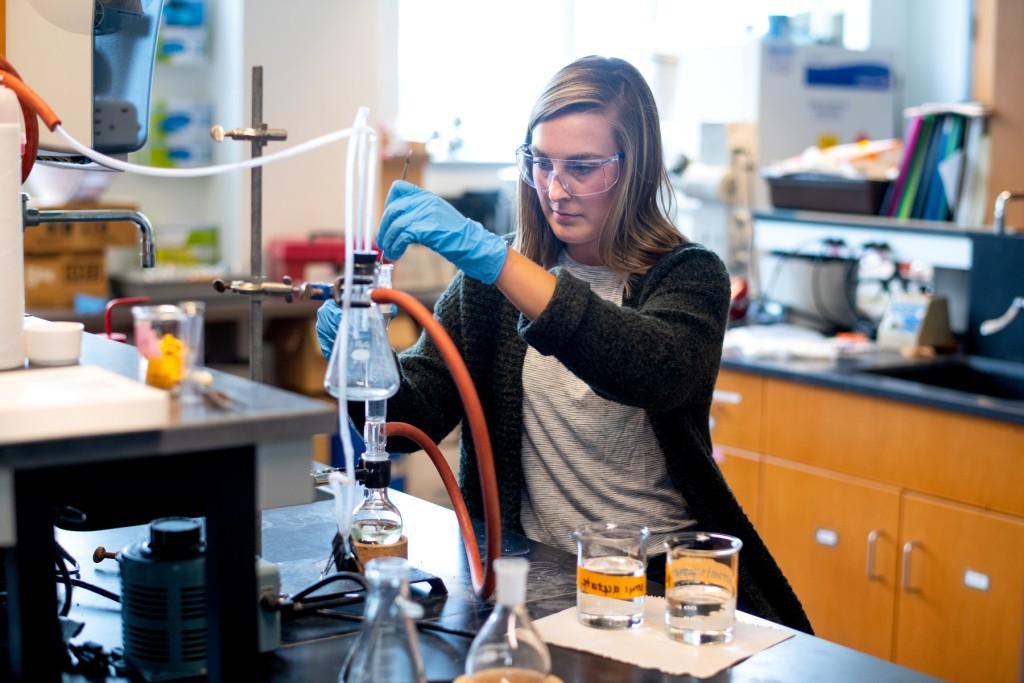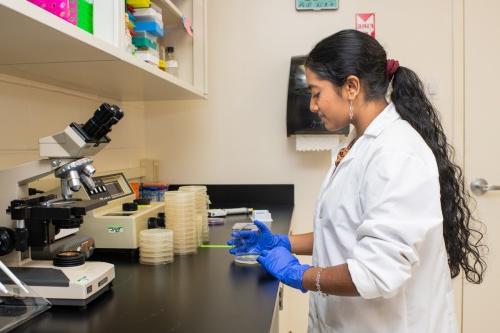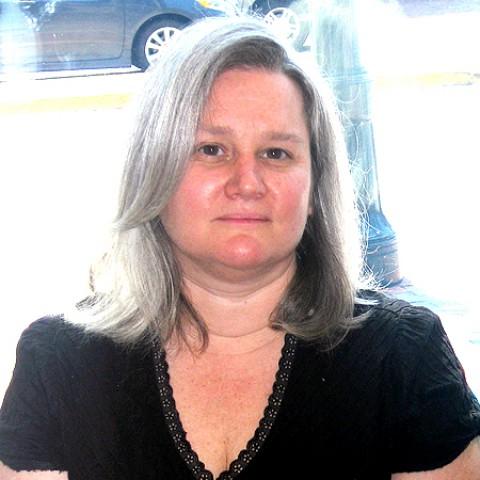Learn Laboratory Science on the Coast of Maine
Like a precisely focused microscope, UNE’s Bachelor of Science in Laboratory Science concentrates on classic and state-of-the-art lab technique and instrumental methodology, giving you a firm grounding in chemistry, biology, and biochemistry. By taking a broad spectrum of lab courses, you’ll develop a comprehensive repertoire of skills that will serve you well in a variety of modern lab settings, including academic, medical, or industrial labs.


Why UNE for Your B.S. in Laboratory Science
Ranked a “High Research Activity” university by the Carnegie Classification, UNE boasts all the advantages and resources that you would expect at a large institution. Yet we provide a small, intimate college environment that gives you the one-on-one attention and access to sophisticated equipment that are uncommon at the undergraduate level. The Laboratory Science major offers:
- Training in state-of-the-art lab techniques
- Abundant local internship opportunities
- Focus on independent experimental design
- Proximity to health professions programs
- Formal and informal peer mentoring
- Teaching assistantships
What will you study? Laboratory Science Degree Curriculum Overview
B.S. in Laboratory Science Courses
The following are some examples of the exciting courses that you can take:
- Biochemistry
- Microbiology
- Physical Chemistry
- Advanced Lab
- Instrumental Analysis
- Parasitology
- Advanced Biochemistry Lab
- Quantitative Analysis
- Histology
- Human Anatomy, Physiology, and Pathophysiology
Honors Program
We offer qualified students the option of graduating with Honors. This includes significant research, scholarship or creative activity under the direction of a faculty member. Interested students should consult with their advisor.

Career Paths for B.S. in Laboratory Science Majors
Whether you’re destined for a career in medical technology, quality control, biotechnology, or pharmacology, your major in Laboratory Science will provide the knowledge, laboratory skills, analytical abilities, and internship experience you need to succeed.
As a Laboratory Science graduate, there are many professions that you may explore, including:
- Biotechnology Researcher
- Biomedical Scientist
- Laboratory Technician
- Clinical Research Associate
- Research Scientist
- Teacher
- Science Journalist
- Toxicologist
- Forensic Scientist
- Phlebotomist
Career Advising for B.S. in Laboratory Science Students
Whether you have a specific career goal in mind or a vague idea of the field that interests you, Career Advising is here to help you plan your next step.
Laboratory Science Facilities
Our Laboratory Science program is housed in Peter and Cecile Morgane Hall, with additional teaching and research laboratories in the Harold Alfond Center for Health Sciences and biochemistry research laboratories in the Pickus Center for Biomedical Research. All of the facilities are located on our beautiful seaside campus in Biddeford.
Morgane Hall houses the general chemistry, general physics, and biochemistry teaching labs as well as some small research labs. The advanced chemistry teaching and research labs are located on the third floor of the Alfond Center and the first floor of the Pickus Center. Pickus has flexible biochemistry research space, where you work with faculty using a wide range of modern chemical and biochemical instrumentation in facilities designed to be conducive to learning and research productivity.
Experiential Learning in the Bachelor’s Degree in Laboratory Science
In our Laboratory Science program, you’ll engage in hands-on learning by working with faculty on research projects, conducting your own lab experiments, and getting on-the-job experience through internships – because at UNE we believe in learning by doing.
Internships for Laboratory Science Majors
You may complete an internship over the summer at sites including hospitals, private or government labs, educational institutions, or science centers. Or intern during the academic year with one of the prestigious employers with which we partner:
- IDEXX
- Lonza
- Jackson Laboratories
- Envirologix
- Katahdin Labs
For more information email the Academic and Career Advising Center at advising@electronic-fittings.com.

Research for Laboratory Science Students
We offer a breadth of research opportunities not commonly found at the undergraduate level – from synthesizing bioactive compounds and engineering protein materials to synthesizing small molecule drugs and exploring environmental toxicology,
- Collaborate with faculty on innovative research
- Engage in undergraduate research in your coursework
- Perform paid research
- Present at conferences and publish your findings
Apply Today
Ready to begin your future in UNE’s B.S. in Laboratory Science degree program? Get started today.









